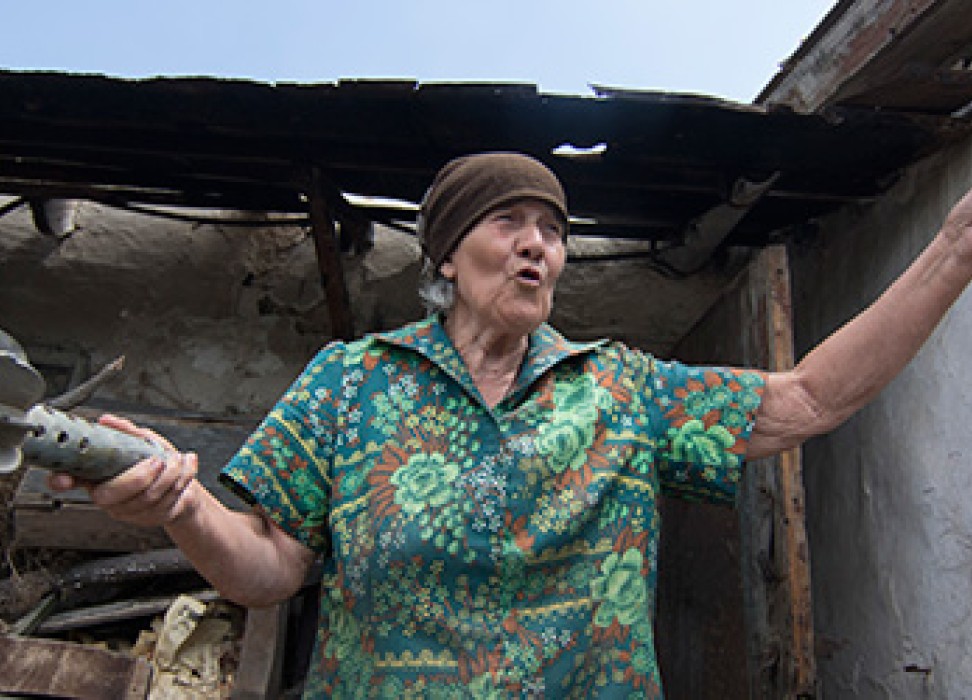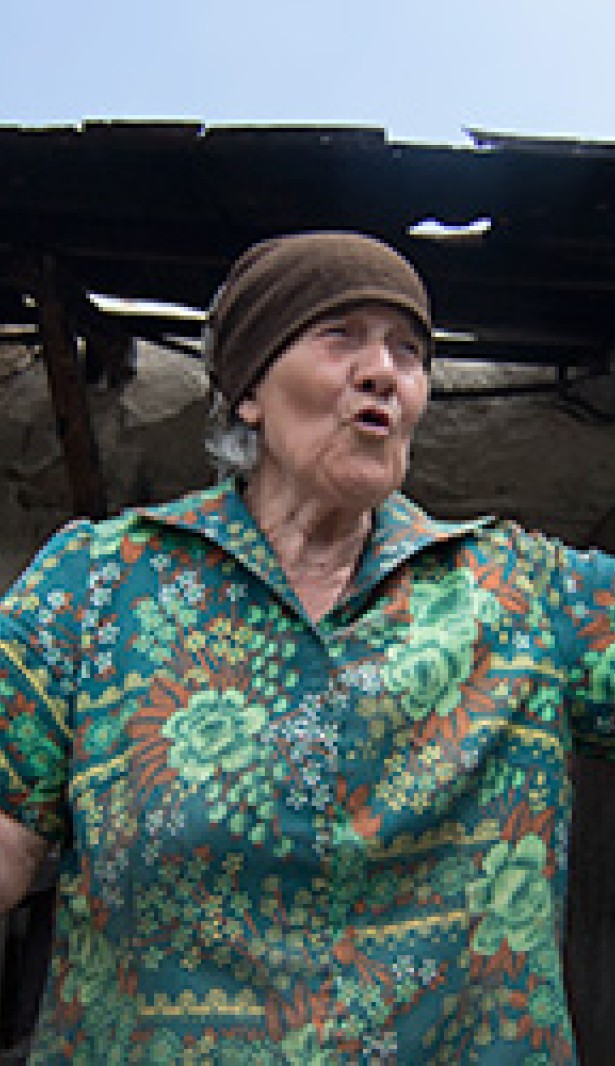Ukraine: over three million civilians lack access to human rights
03 March 2016

“The scariest moments of this war were when mortars were flying above our heads, whistling,” a woman living in Kyiv’s district of Donetsk city in Ukraine, described to the UN Human Rights Office.
“The shooting is starting and we have to hide my sick mother in the basement. We are dragging her, she is screaming and urinates on herself,” she added.
Another woman living in the same area described how her neighbourhood was constantly being shelled. On 2 October 2014, her husband was wounded and paralyzed by a bomb near their home. It’s been more than a year and a half, and her family continues to suffer the daily effects of his injury.
These tragic accounts are among the several testimonies gathered by the UN Human Rights Office for its thirteenth report on the human rights situation in Ukraine.
Even though the ceasefire in eastern Ukraine has held for several months, there are mounting skirmishes between Ukrainian armed forces and the armed groups of the self-proclaimed ‘Donetsk people’s republic’ and ‘Luhansk people’s republic’.
“There is a terrible sensation of physical, political, social and economic isolation and abandonment among the huge number of people – more than three million in all – who are struggling to eke out a living in the conflict line,” said UN High Commissioner for Human Rights Zeid Ra’ad Al Hussein. “They are in urgent need of greater protection and support.”
People living along the contact line in residential neighbourhoods are trapped as the fields around their buildings and along the roads are mined. They feel abandoned as many basic public services are not available anymore.
An estimated daily 8,000 to 15,000 people have to pass through a limited number of checkpoints along the contact line, resulting in long lines of vehicles. In February 2016, a minibus hit a mine on the side of the road near a checkpoint killing a passenger and two bystanders.
People are often forced to spend the night in freezing temperatures. During a cold winter day, an elderly man and woman died while waiting in line at the checkpoints because they were unable to receive medical attention in time.
A women travelling from Mariupol to Donetsk said that they were stuck for several hours, without having access to toilets, water or food.
“It is also not possible to leave the paved road even if you really need to, because everything around you is mined,” she said.
While the Office reports that Ukraine has taken a number of positive steps to advance the protection and promotion of human rights through policy and legal acts, there is still evidence to support violations and abuses of human rights under international law committed by some government services, by all parties involved in the hostilities in Donetsk and Luhansk regions, as well as by the de facto authorities of Crimea and by the Russian Federation.
Some of these acts include allegations of enforced disappearances; missing persons; arbitrary and incommunicado detention; and ill torture and ill treatment perpetrated by Ukrainian law enforcement officials.
Armed groups have committed killings, abductions, illegal and incommunicado deprivation of liberty, torture and ill-treatment. People living in areas controlled by the armed groups are without rule of law or any effective remedy. They are also limited in their exercise of their rights to freedoms of expression, religion, peaceful assembly and association.
Gender-based violence has also been documented by the Office. Female relatives of men suspected of membership or affiliation with the armed groups have been picked up, detained and tortured. In December 2015, in Shchurove village, Donetsk region, officers arrested a 74-year-old woman at her house while they were searching for her son. She was detained, charged with terrorism, and beaten. In May 2015, three women were detained, severely tortured and threatened with sexual violence.
The Office also reported serious human right violations in Crimea, including human rights concerns linked with Russian citizenship and the application of Russia legislation, including its criminal procedure code, with resulting discrimination towards ethnic Ukrainians and minority groups such as Crimean Tatars. This is the case especially with respect to the right to work, property rights as well as in access to health services and social protection.
The report includes several recommendations to guarantee civilian protection and human rights for all civilians and to ensure accountability for these human rights violations. The recommendations are intended for the government of Ukraine, to all parties involved in hostilities in Donetsk and Luhansk regions, as well as to the de facto authorities of Crimea and to the Russian Federation.
3 March 2016

